Surface in Biology
In biology, the term "surface" refers to the outermost layer or boundary of an organism, organ, cell, or any anatomical structure. The surface plays a crucial role in various biological processes, including nutrient exchange, gas exchange, communication with the external environment, and protection against pathogens and physical damage.
Key Concepts
- Cell Surface: The outer boundary of a cell, consisting of the plasma membrane, which regulates the passage of substances into and out of the cell.
- Organ Surface: The outer layer of an organ, which may have specialized structures such as villi in the small intestine for increasing surface area for nutrient absorption.
- Surface Area to Volume Ratio: The ratio of the total surface area to the total volume of an object or organism, which has implications for processes such as diffusion and heat exchange.
- Surface Tension: The cohesive force exerted by molecules at the surface of a liquid, which affects phenomena such as water absorption in plants and the functioning of alveoli in the lungs.
Study Guide
When studying the concept of "surface" in biology, it is important to focus on the following key areas:
- Understand the structure and function of the cell surface, including the composition of the plasma membrane and its role in maintaining cellular homeostasis.
- Explore the adaptations of organ surfaces for specific physiological functions, such as the presence of microvilli in the small intestine and the gills in fish for efficient gas exchange.
- Examine the relationship between surface area to volume ratio and its impact on biological processes, such as the efficiency of nutrient uptake and waste removal in cells.
- Investigate the significance of surface tension in biological systems, such as the role of surfactants in reducing surface tension in the alveoli to prevent collapse during exhalation.
By mastering these key concepts and study areas, students can develop a comprehensive understanding of the role of surface in biological structures and processes.
[Surface] Related Worksheets and Study Guides:
.◂Biology Worksheets and Study Guides High School. Invertebrates
Worksheet/Answer key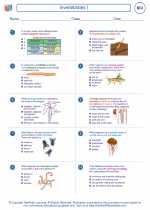 Invertebrates I
Invertebrates I  Worksheet/Answer key
Worksheet/Answer key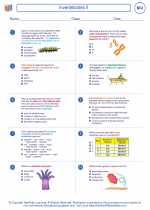 Invertebrates II
Invertebrates II  Worksheet/Answer key
Worksheet/Answer key Invertebrates I
Invertebrates I  Worksheet/Answer key
Worksheet/Answer key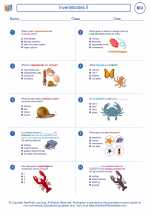 Invertebrates II
Invertebrates II  Worksheet/Answer key
Worksheet/Answer key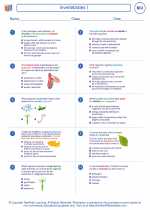 Invertebrates I
Invertebrates I  Worksheet/Answer key
Worksheet/Answer key Invertebrates II
Invertebrates II  Vocabulary/Answer key
Vocabulary/Answer key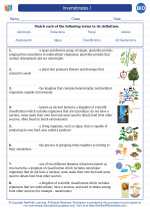 Invertebrates I
Invertebrates I  Vocabulary/Answer key
Vocabulary/Answer key Invertebrates I
Invertebrates I  Vocabulary/Answer key
Vocabulary/Answer key Invertebrates I
Invertebrates I 

 Worksheet/Answer key
Worksheet/Answer key
 Worksheet/Answer key
Worksheet/Answer key
 Worksheet/Answer key
Worksheet/Answer key
 Worksheet/Answer key
Worksheet/Answer key
 Worksheet/Answer key
Worksheet/Answer key
 Vocabulary/Answer key
Vocabulary/Answer key
 Vocabulary/Answer key
Vocabulary/Answer key
 Vocabulary/Answer key
Vocabulary/Answer key

The resources above cover the following skills:
Concepts of Life Science (SC1, SC2, SC3)
The student demonstrates an understanding of the structure, function, behavior, development, life cycles, and diversity of living organisms by describing the structure-function relationship